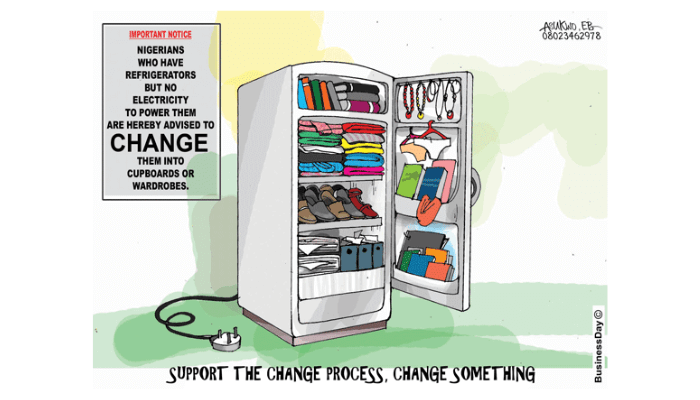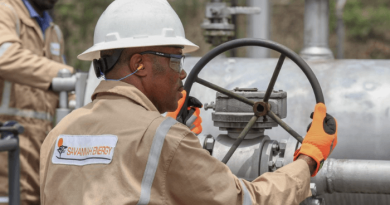Running on Empty: MSMEs run on fumes as power cuts cripple operations
In 2019, Ola Drinks opened its doors to residents of Ketu and since then it has become a popular meeting place for locals in the community.
But less than a year after the country’s worst cost-of-doing-business crisis that forced many small businesses to close shop, Toyin Oladimeji, chief executive officer of Ola Drinks, whose business employs seven people, says her business is facing another existential crisis.
“The light situation has worsened in our area and I run on generator for my business,” she notes, saying that the situation is hurting her business.
“I have three generators and often buy 10 to 15 litres of fuel daily, which costs about N13,500 to power my two deep freezers,” she says, stating that her rising energy cost has doubled amid declining sales.
For Femi Ademola, a 44-year-old welder at Agbole-Akute, Ogun State, who has been in operation for over a decade, getting five hours of daily electricity can only be a miracle.
“I run on diesel for at least eight hours daily because there is hardly any light here,” he says, referring to Agbole, a suburb sharing boundary between Lagos and Ogun State where his business operates.
“Diesel prices have surged by over 50 percent since 2023 and I buy nothing less than 10 litres for my business daily,” he explains, saying that it has been very challenging for his business since 2023.
He attributes the challenge to the rising cost of electricity, which, according to him, accounts for 35 percent of his current operational cost.
Read also: Running on Empty: Electricity sector reform and Nigeria’s national security imperative
Adenike Fagbemi, founder of BrandTell Nigeria Limited, a digital marketing company at the outskirts of Ikorodu, says she usually puts on the generator daily for at least five straight hours owing to the poor power supply where her business operates.
“But now I switch it on only when the need arises and put it off afterward since the sharp surge in fuel prices,” Fagbemi notes.
“The situation has made our working environment less conducive as we have to work without putting on air-conditioning when there is no power supply,” she adds.
Oladimeji, Ademola and Fagbemi are among Nigeria’s 39 million small business operators grappling with Nigeria’s unrelenting power outages which continues to harm their profits.
Poor power supply in Africa’s most populous country, Nigeria, is hurting businesses and manufacturers, raising their production costs and reducing their competitive advantage, according to experts.
Energy is a key element of the production process. However, Nigeria’s inability to supply and distribute sufficient electricity has left businesses at the mercy of alternative energy sources, with many using generators that consume diesel and fuel.
Factories not left out
Nigeria’s poor power supply is not only affecting small enterprises but also hitting medium and large manufacturers hard as the country’s over 4,000 megawatts remain insufficient to supply its 200 million people and factories, experts say.
A 2022 Energy Progress Report released by Tracking SDG 7 states that Nigeria has the lowest access to electricity globally, with about 92 million persons out of its 200 million people lacking access to power.
Read also: Running on Empty: Residential power users bear brunt as big consumers shun grid
According to the Manufacturers Association of Nigeria (MAN), reliable energy supply remains the only way to unlock the country’s industrial potential and drive growth through the manufacturing sector.
“By addressing energy security, we can unlock the full potential of our industries, reduce the cost of energy in manufacturing and create more opportunities for Nigerians while contributing to the country’s socio-economic prosperity,” Francis Meshioye, MAN’s president says.
“Unfortunately, the energy landscape in Nigeria is fraught with challenges such as inadequate power supply, unreliable energy infrastructure, and high electricity tariffs,” he says.
“These challenges not only hamper the growth of industries but also undermine our ability to attract investments and create jobs,” he adds.
Counting the costs
Poor power supply costs Nigeria’s businesses $29 billion yearly, according to the World Bank.
A BusinessDay analysis of Nigeria’s 17 largest firms by market capitalisation shows that their combined energy costs ballooned by 77 percent to N1.4 trillion in 2024, up from N838.3 billion in 2023.
Segun Ajayi-Kadir, MAN’s director general, says spending on alternative energy sources jumped to N1.11 trillion in 2024 from N781.68 billion in 2023, reflecting a 42.3 percent increase.





